Officers don’t show up for their shift thinking, “Today I am going to use excessive use-of-force.” Everything that has been happening before the incident, is what triggers the final blow.

Beyond Tactics: Addressing Block-Out Syndrome in the Wake of Idaho
Officers can quickly descend the RITE Emotional Energy Ladder, leading to negative emotions and potentially escalating situations with severe consequences. The connection drawn between a lack of Emotional Intelligence (EI) and “Block-Out” is crucial.

5 Ways to Remove Bad Apples Inside an Agency
Bad apple toxic employees need fuel to spread their ‘fire of anger’, thereupon-influencing other employees to be angry and mad with them. It can be a wildfire inside the department if unchecked. It will sabotage the success of the agency and spread into the community.

Stuck inside a Hamster Wheel… Now what?
Once off the hamster wheel you see others spinning. Reflecting can help you break free from the hamster wheel and pursue a more balanced and intentional life.

7 Points to Reducing Excessive Force
Every officer needs to watch this 15 minute TED Talk, as it is directed at Officers of every age, skin color, race, rank, and gender. We can either escalate the situation with use of force, or learn this Secret to de-escalate.
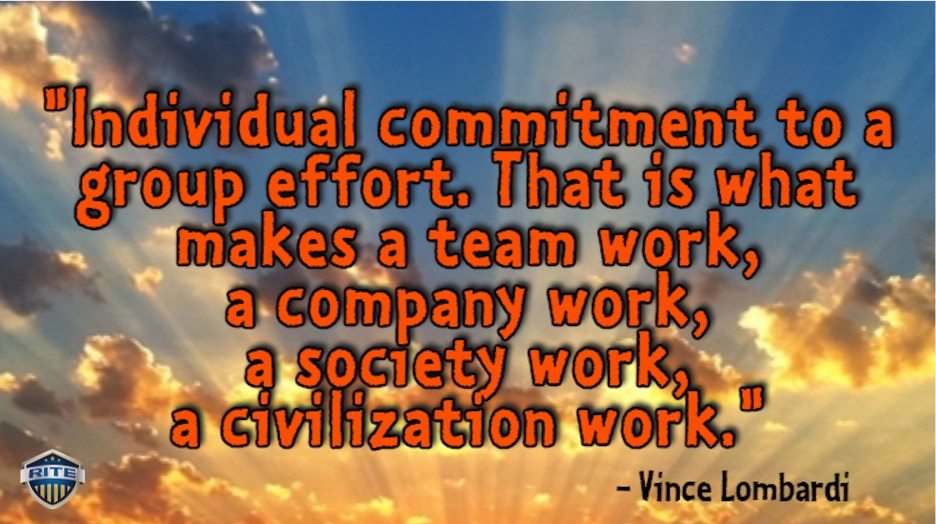
Lombardi Quote scores a Touchdown for Policing and Retention
What makes a department great, is the individual commitment everyone makes to themselves first. This is adds to the group effort and builds retention of your agency.
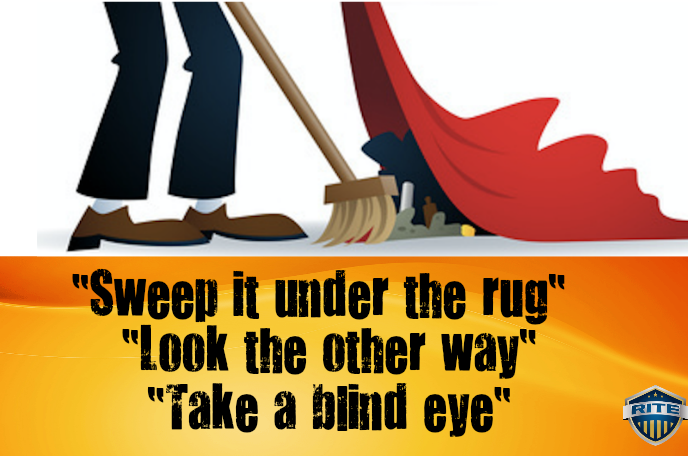
Sweeping Misconduct under the Rug, won’t Brush it Away
Bad press is like a knock-out punch that sends everyone scrambling. Now the command staff works to defend possible misconduct allegations.

3 Steps to Eliminate Toxic People
Spending time with people who have a consistently pessimistic or complaining attitude, it’s likely that their negativity will rub off on you. .

Over $600 Million in Grant Funding for Law Enforcement Agencies
Get this DOJ grant that helps officer’s learn to recognize signs and symptoms of stress, PTSD, and suicidal thoughts, builds up positive mental health.

“What I do today is very important, because I am exchanging a day of my life for it.”
As public safety professionals, we can have stressful moments, we can have bad days, and it’s common to witness traumatic calls. How we handle stress and move forward is the key to the ‘NEW DAY Thought Process’

Emotional Intelligence Inside the Olympic Mindset
Olympics show us THE best athletes in the world. What separates the gold medal winners from the silver and bronze, often comes down to emotional control.

How to Help the ‘Never Enough Officer’
He convinced several of us to leave our agency and go to a “better” one, where we could all make MORE money… What a HUGE mistake!

Attempted Suicide shook Officer to his Core
No one expects you to handle all the burdens that life may throw at you. Having your own Value Plan, can help you better know yourself, so that when the unexpected situation occurs, like the mental trauma sucker punch, you will better prepare to handle it.

How Emotional Intelligence Can Increase Officer Street Survival
Times are changing, is an understatement. But if you know how to roll with it, your chance of surviving the street will increase dramatically.
Getting mental health counseling is not a sign of weakness but rather of strength. Street survival means taking care of your mental wellness…
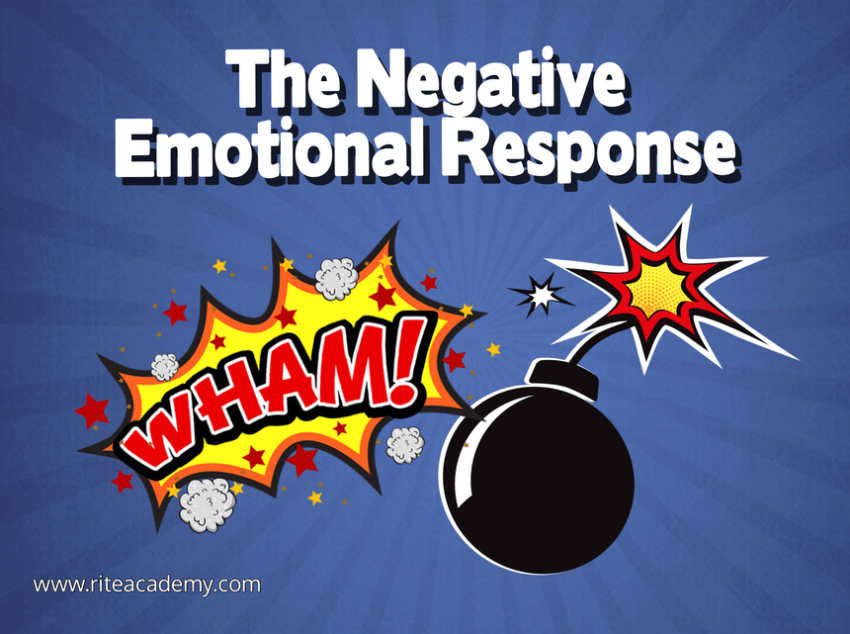
How Negative Emotional Responses Alter Decisions
Have you ever witnessed a co-worker escalate a situation because they responded too quickly with heightened emotions? It happens every day in public service. The more you learn to control…
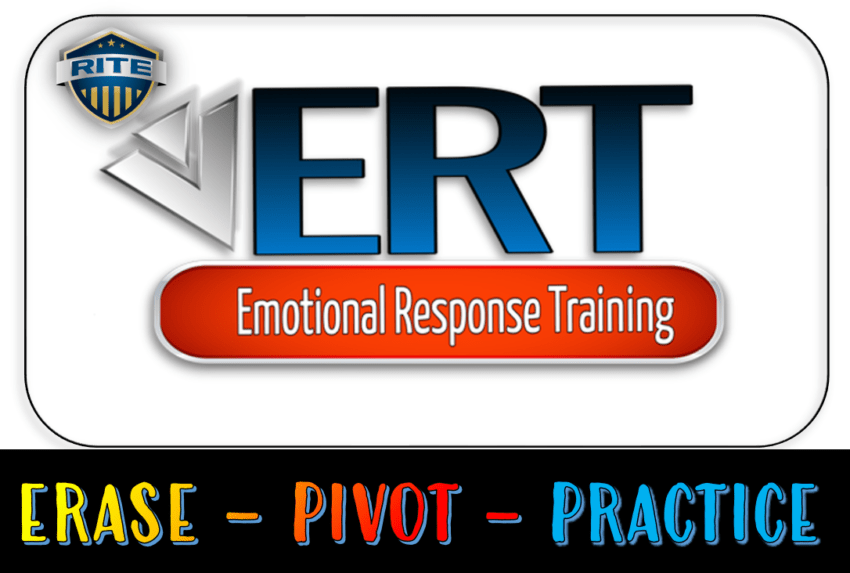
3 Ways Emotional Response Training Improves Officer Wellness
In Internal Affairs, we get asked questions we can’t answer. We remember the steak we ate last week, but can’t recall details of yesterday’s escalated incident… how is that possible?
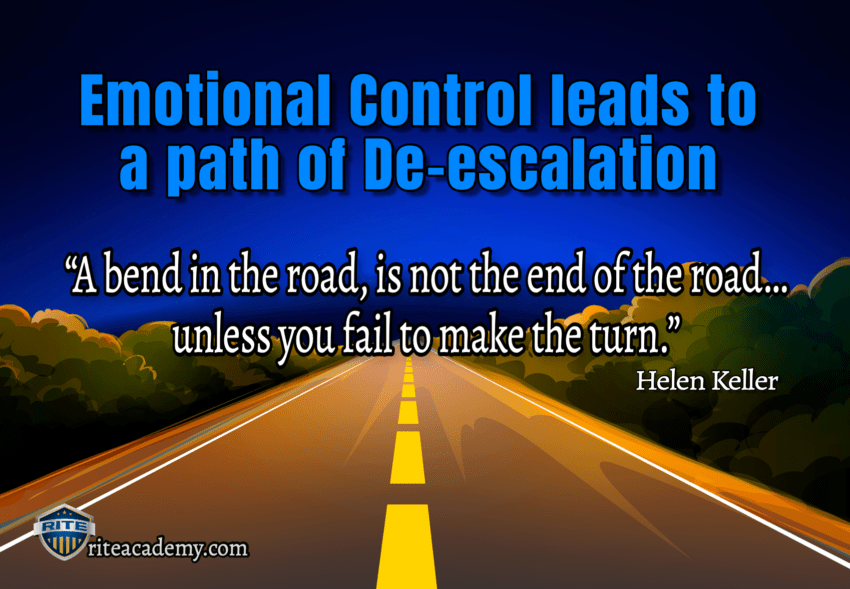
How Emotional Control Leads to Better Outcomes
Learning to de-escalate negative emotions in the moment take practice. Like an athlete at the free-throw line (in Basketball), take a breath, give yourself…
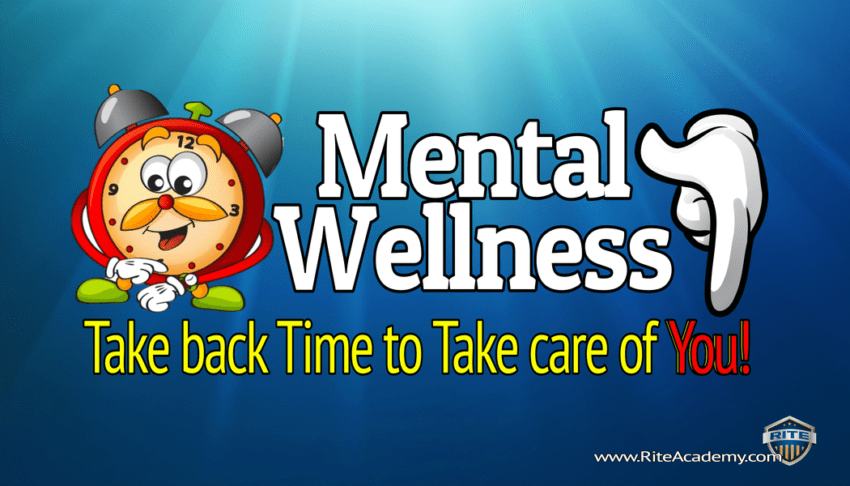
Take back your time to Improve Mental Wellness
It’s time that ‘YOU’ own your time at work to help improve yourself, and your agency. What this means is not wasting it listening to toxic behavior from co-workers.
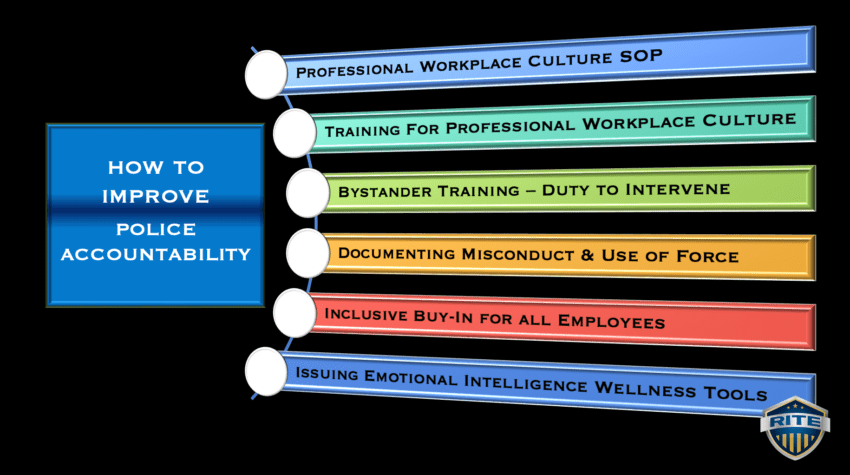
Improving Police Accountability with Culture Training and Tools
Since the 2020 George Floyd incident, there has been much discussion regarding Police accountability culture. It’s a delicate balance to reduce misconduct, while improving agency culture and officer wellness. New…
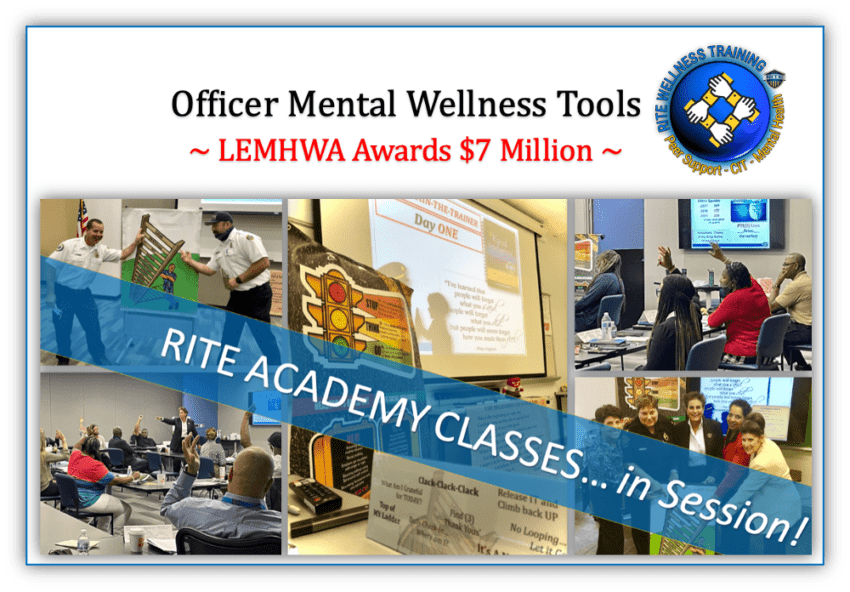
Officer Mental Wellness Training and Tools for LEMHWA – Awarded Agencies
RITE Training and Tools meet the goals of the 2017 Act, and we support the Department of Justice and the Administration’s commitment to improving mental health for all law enforcement. RITE is firmly committed to supporting the mental health of those who serve our communities so that they can best fulfill their duties to protect the public.
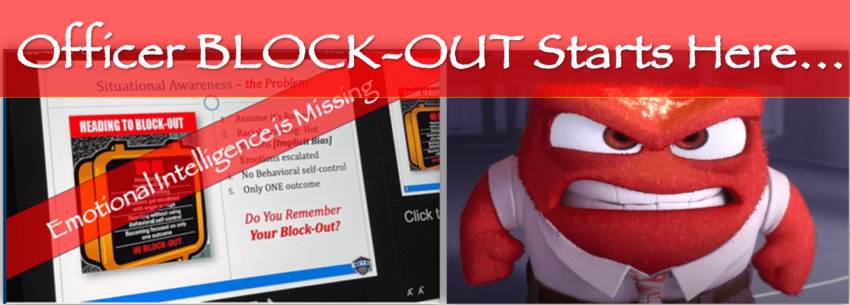
Emotional Wellness Prevents Angry Block-out
Block-out Syndrome is when all Emotional Intelligence leaves you brain, you can’t think clearly to make good decisions, and you commit some form of misconduct… (more often than not, excessive use of force). It is the career-ending moment that you cannot take back.
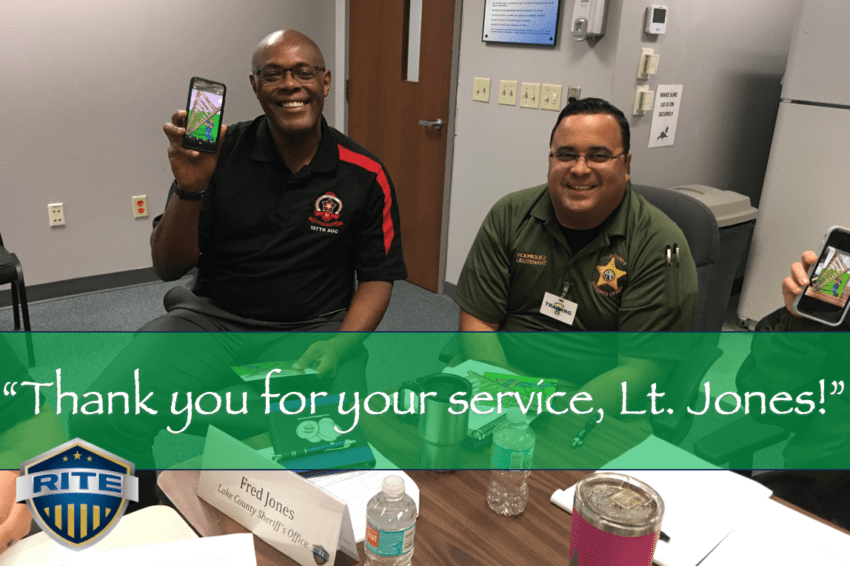
TedTalk Reduces Use of Force
After using what he learned in our 2-day Trainer’s class (Emotional Intelligence, Empathy Communication, and many lessons using Tools like the RITE Ladder and New Day), he told us his life had changed for the better, at home and at work.
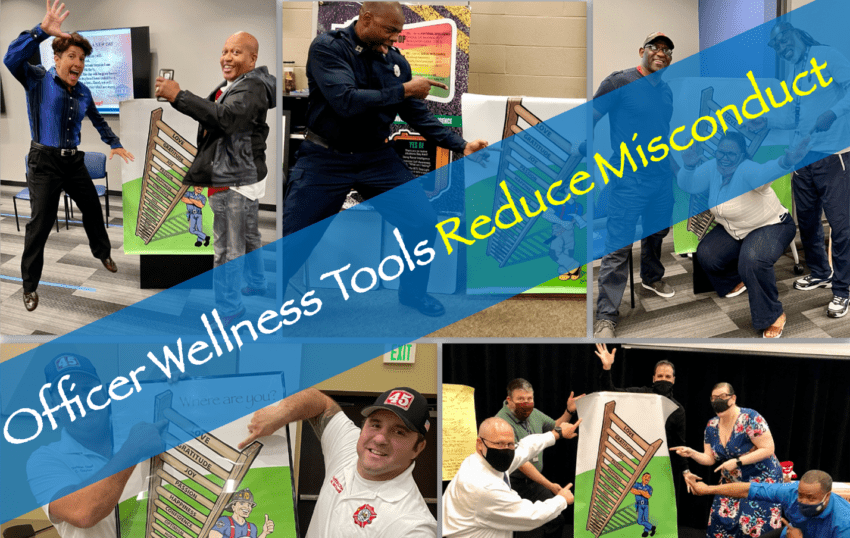
Ignored PTSD and Career Trauma leads to Officer Misconduct
Mental stress of the job can bring anyone to their knees. You glass goes from mostly full, to half-empty, and for some… glass EMPTY. Thoughts of, “I’m not okay creep in,” yet you don’t know why, and you don’t know how to get help.
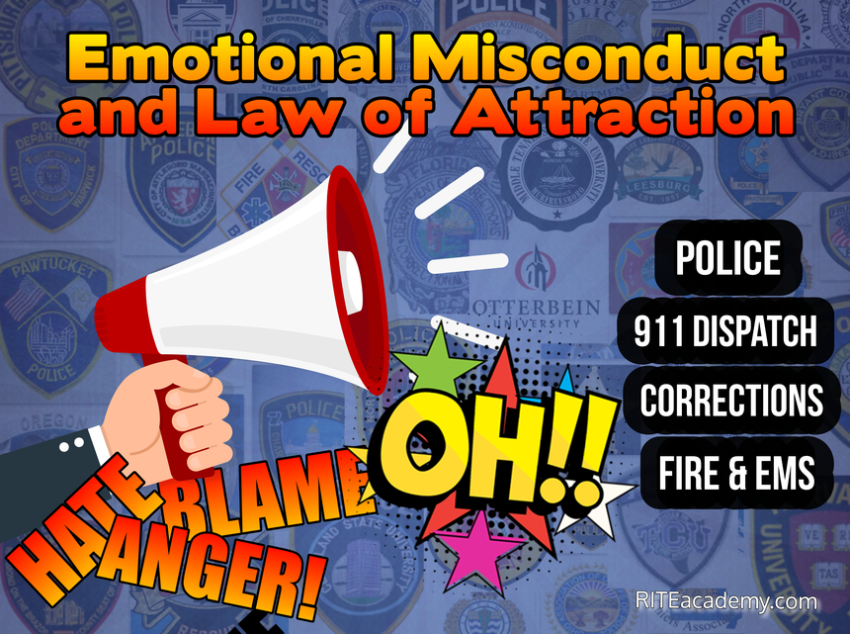
3 Emotional Misconduct Lessons to Apply the Law of Attraction
The old saying holds true, “People don’t leave a department, they leave because of the people in the department.”
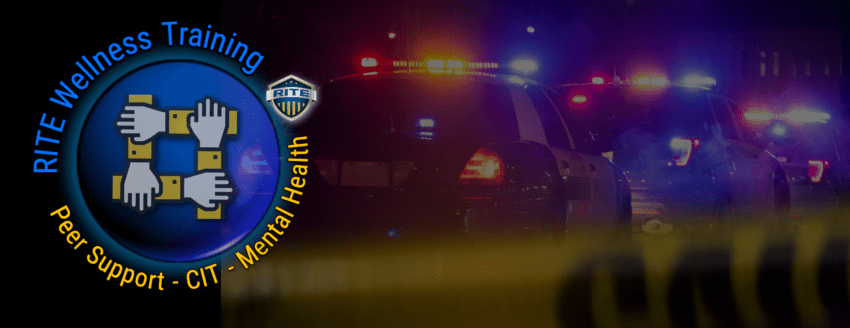
5 Ways Peer Support Improves Officer Well-being
Peer Support Group, Crisis Intervention Teams (CIT), Mental Health Advocates, and/or Chaplains, that support employees when they need it.
If you have just one employee that needs Peer Support, then everyone in your agency needs to read this. We have yet to work with an agency, that didn’t need to improve their officer well-being programs.
